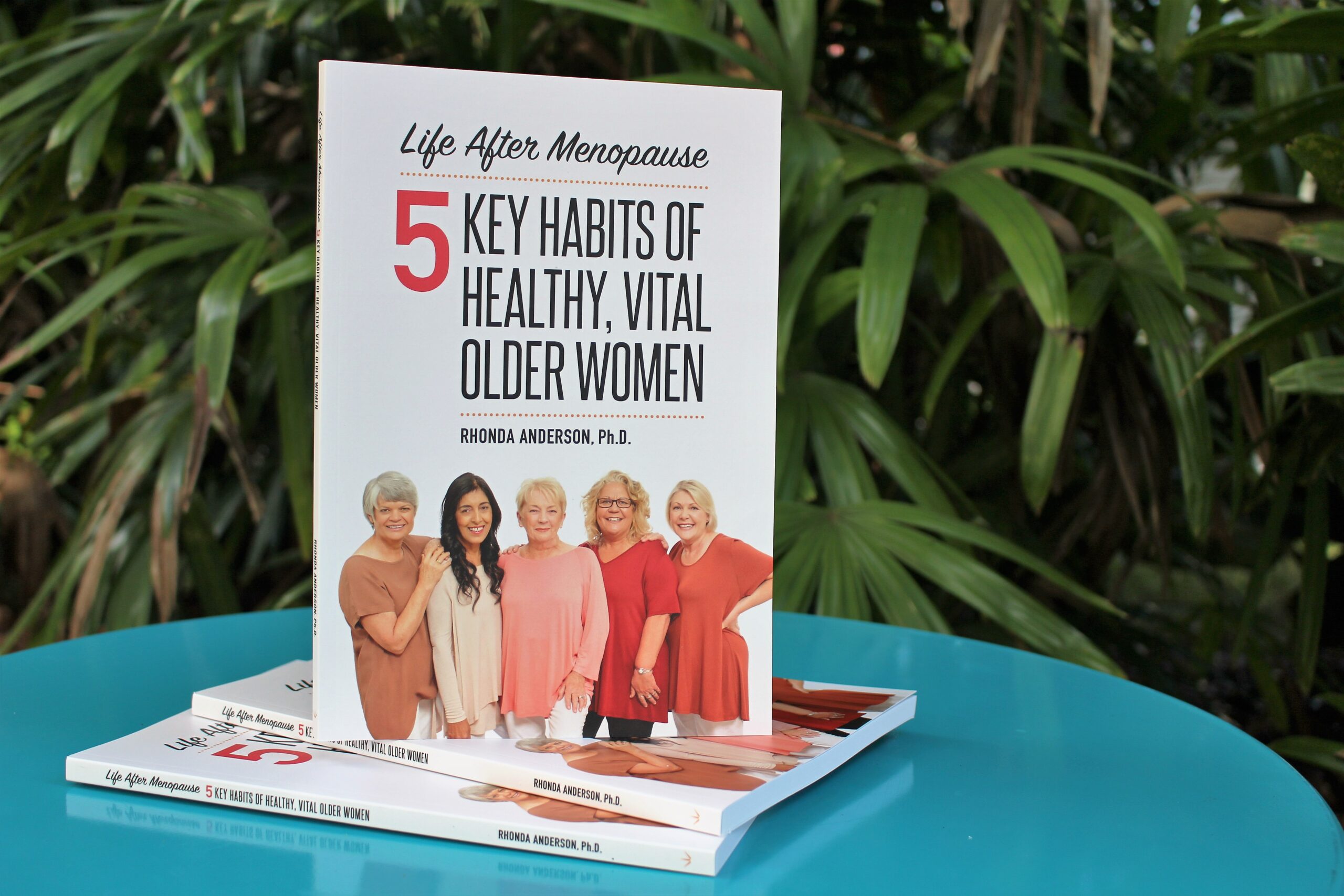This month it’s that long since I launched my book on the habits of healthy, vital older women, so it’s a chance to reflect on what’s changed in that time and what I might say differently today.
While seven years isn’t long, in a fast-moving world a lot happens in that time. I wrote the text in 2016, four years before we’d heard of covid or had any inkling of the impact it would have on the world.
I shaped the book around five habits that underlie healthy ageing. I called them the habits of Being Pro-ageing (probably the most important), Building Resilience (handling stress), Going Mediterranean (on diet), Looking for Opportunities to Move (physical activity), and Turning to Nature First (monitoring our use of drugs and chemicals).
The stars of it were the five women who illustrated the way they’d adopted those habits. Real-life examples work because they give us a sense of how women like us tackle these things.
If I was writing a book now, I can’t be sure I’d use the theme of habits in the same way, though I still think they’re the backbone of a healthy lifestyle.
In recent years there’s been a big conversation around neurodivergence, which is a reminder that the way we think, behave, and experience the world varies enormously. So we won’t all respond to the idea of bedding down habits and routines in the same way.
The covid years probably hastened the development of technology, in the form of apps and devices, so now we can also track habits in ways we mightn’t previously have thought of.
Habits are also bound up with our identities. They can shape who we are, or who we become. An early point in the book, and one I wouldn’t alter because I think it’s critical, is about the need to decide what kind of older woman we want to be, and what we want to do with the years ahead of us.
The answer to those two questions tells us what habits we’ll need to fulfil on them.
In the habit of Being Pro-ageing I referred to ageism. These days I’d probably feel compelled to say more about that and how to grapple with it.
Just this morning I read a newspaper article written by a woman in her 50s who’d grown out her grey hair and was astounded by the way she was talked down to, called names like ‘dear’ or ‘darl’, or just plain ignored.
She writes about choosing fruit in the supermarket when a well-dressed man in his 30s stood close beside her, then reached across in front of her face, almost hitting her, as though she wasn’t there. She waited for him to realise what he’d done and apologise, but he simply made his selection and walked away.
There’s also a section in the book on coming to terms with our older appearance. Helen Mirren suggests we need a bit of ‘swagger’. She refers to her beauty bag (I assume it’s her makeup bag) as her swagger bag. The Macquarie Dictionary says that to swagger is to walk or strut with a defiant or insolent air.
Here she is from a couple of years ago. https://www.youtube.com/watch?v=TN8rTAWdzIU
A big focus for a book I was writing now would be what research has told us about older women’s health in recent years. Even since 2016, a lot of work has been done in areas such as brain, gut, heart, and muscle and bone health.
For example, we’re learning that exercise, even in small amounts, seems to give us a bigger brain. And bigger brains tend to be healthier brains. The growth shows up most in the parts involved with thinking and memory, i.e. the areas that typically shrink with age.
Where heart health is concerned, recent studies have taught us that we can’t treat a woman like a smaller version of a man. Heart disease can show up very differently in women.
I’m not sure a lot has changed as far as what healthy eating looks like, though I’d probably need to rewrite the section on supplements. Thinking on these shifts along with each new batch of research.
This month I’ve written a post on creatine, a supplement being used to promote muscle and bone health in older people. That wouldn’t have been on my radar seven years ago.
Even the delivery of health services has changed in seven years. Covid helped get us familiar very quickly with platforms such as Zoom. Now, many of us have done virtual exercise classes or had telehealth appointments.
I wrapped up the book with the analogy of swimming against the tide. We can either succumb to the ageist stereotype of what it is to be an older woman in this country, and the health outcomes that go with it, or we can do our darndest to look after ourselves.
Healthy ageing starts with an attitude that we and our well-being matter and are worth the effort.
Which might bring us back to Helen Mirren and swagger.
I used a quote of hers in the book. When she was 70 (she’s now 78) she said that if she’d had a daughter the first words she’d have taught her would’ve been “f*** off”, because there’s a lot to be said for having the confidence and courage to stand our ground.
That might also be a perfect response to ill-mannered men in supermarkets.

